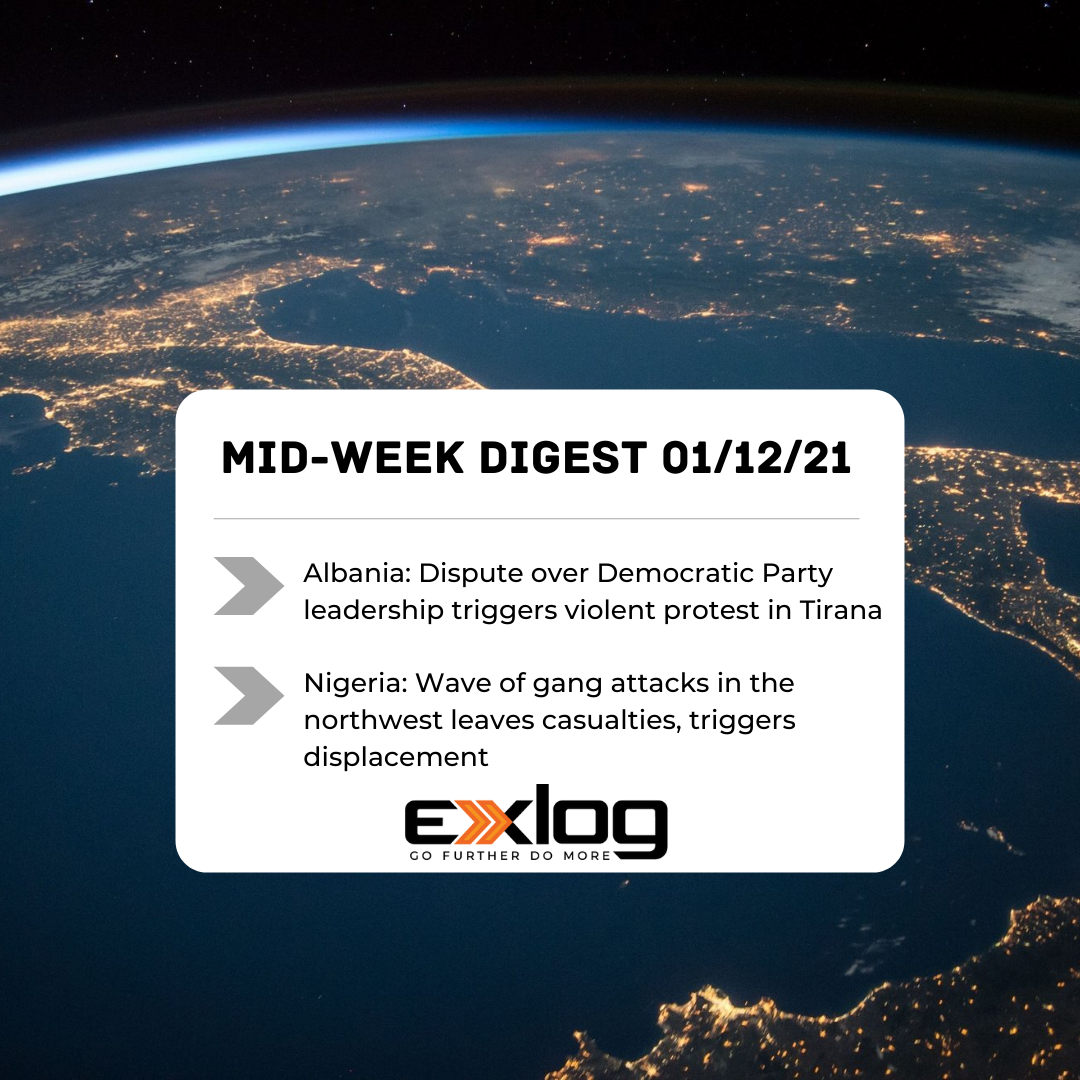Opposition party conflict triggers unrest in Albania and Escalation of gang violence in Nigeria
Albania: Dispute over Democratic Party leadership triggers violent protest in Tirana
Supporters of former president and prime minister, Sali Berisha, stormed the headquarters of Albania’s opposition Democratic Party in Tirana on Jan. 8, causing property damage and triggering a violent government security response. The protesters destroyed metal security doors with hammers and stormed the first floor of the building, clashing with the party staff. Local media reports indicated that the personnel inside the building was forced to spray fire extinguishers to prevent the protesters from reaching the second floor. Police fired tear gas and used water canon to quell unrest; the crowd was dispersed in the afternoon. At least one police officer and one demonstrator were injured, while 25 protesters and eight party members were arrested as a result of the altercation. No significant disruptions, incidents of vandalism or road closures were reported beyond the immediate vicinity of the party HQ. The US Embassy in Tirana issued a threat alert, warning US citizens of a possible escalation of violence in other parts of the city, although no further protests were recorded following the initial incident. Berisha was removed from the party’s Parliamentary Group last year over alleged corruption during his 2005-13 tenure as prime minister – accusations he has denied. The decision prompted Berisha to launch a countrywide movement to challenge the leadership of the party’s Chairman, Luzlim Basha, causing a rift between supporters of the two politicians. In December 2021, Berisha organized a referendum and pronounced himself as party leader, claiming that more than 50% of 75,000 party members supported the dismissal of Basha; the Democratic Party refused to recognize the results of the assembly. The internal conflict over the party’s leadership is expected to continue in the short-to-medium term and will likely lead to further protests and incidents of violence between rival supporters.
Nigeria: Wave of gang attacks in the northwest leaves casualties, triggers displacement
Recent attacks by motorbike gangs in Nigeria’s northwest region killed at least 218 people, displaced 10,000 others and caused widespread property damage. Media reports indicate that approximately 300 gang members – locally known as bandits – stormed nine communities in northwestern Zamfara state between Jan. 4-6, raiding cattle, burning homes and indiscriminately opening fire on civilians. The raids came a day after the Nigerian military conducted airstrikes in the region in an attempt to force criminal groups from their forest hideouts, triggering a retaliation from the gangs. Originally provoked by a decades-long dispute over the distribution of natural resources between farmers and herders, Nigeria’s gang violence has escalated over the years and spiraled into organized criminality, with bandits profiting from kidnap-for-ransom schemes, looting and cattle rustling. Over the past two years, criminal gangs became involved in mass kidnappings from boarding schools that present an easy target due to the lack of adequate security measures. Such abduction incidents normally attract attention of the press and pressure authorities and school management into a negotiation and ransom payment. On Jan. 6, the Nigerian government formally designated criminal gangs as terrorist groups, allowing security forces to intensify combat operations and impose tougher sanctions on suspects and those assisting gang members with food or fuel. The designation likely signifies an escalation of a security crackdown targeting criminal hideouts in the near-to-medium term which could trigger further retaliation from the criminal groups and fuel more violence against civilian communities.


